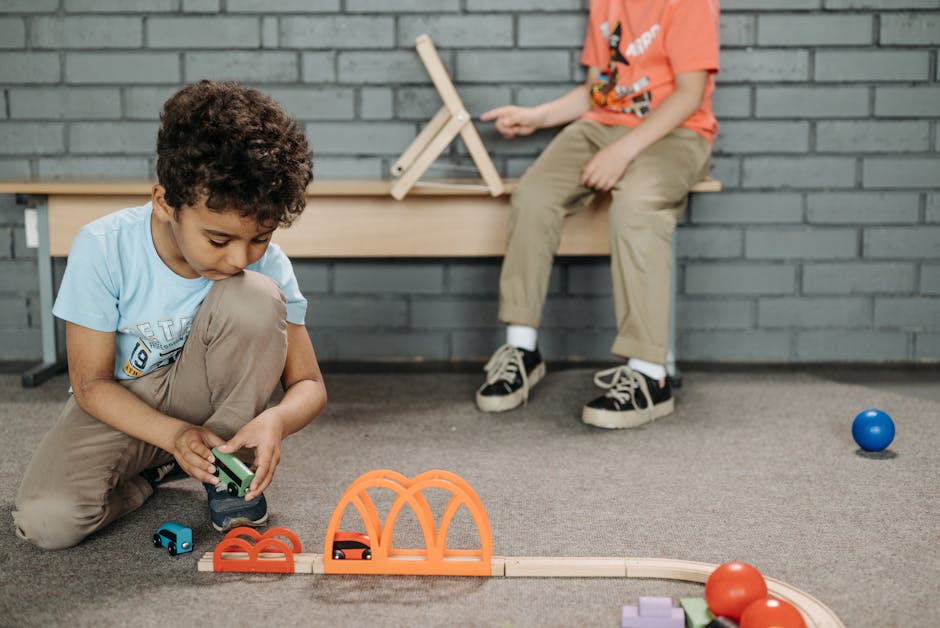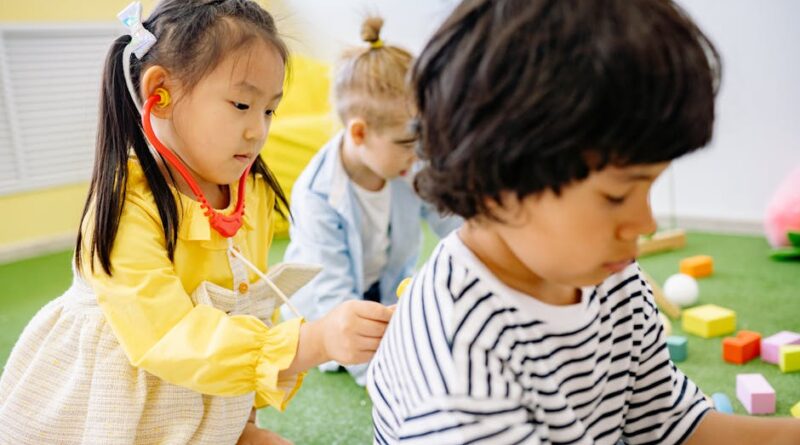The Role of Games in Early Childhood Development
From the moment a child is born, their brain is actively developing and forming connections that will shape their future. During early childhood, play becomes a crucial part of this developmental process. Games, in particular, play a significant role in fostering cognitive, social, emotional, and physical development in young children. In this article, we will delve into the importance of games in early childhood development, exploring how they impact various aspects of a child’s growth and learning.
The Power of Play

Play is not just a way for children to pass the time; it is a fundamental aspect of their development. Through play, children learn to explore the world around them, interact with others, and develop crucial skills that will serve them throughout their lives. Games, in particular, offer a structured form of play that can have a profound impact on a child’s cognitive and social development.
Research has shown that play is essential for brain development in early childhood. When children engage in play, whether it’s through games, imaginative play, or physical activities, their brains are actively making connections between neurons. These connections, known as synapses, are the building blocks of learning and memory. By engaging in play, children are not only having fun, but they are also laying the foundation for future learning and development.
The Cognitive Benefits of Games

Games are excellent tools for promoting cognitive development in young children. When children play games, they are required to use their problem-solving skills, memory, attention, and critical thinking abilities. Board games, puzzles, and memory games, for example, can help children improve their concentration, spatial awareness, and logical reasoning skills.
Games also provide opportunities for children to practice and improve their executive functions, such as planning, organizing, and self-regulation. For instance, when playing a board game that involves taking turns, children learn to wait patiently for their turn, follow rules, and strategize their moves. These skills are essential for success in school and later in life.
Moreover, games can stimulate creativity and imagination in children. Whether it’s creating a story based on a board game or inventing new rules for a game they are playing, children have the freedom to express themselves and think outside the box. This creativity is vital for problem-solving and innovation in the future.
The Social Benefits of Games

Games are not only beneficial for cognitive development but also play a crucial role in fostering social skills in young children. When children play games with others, they learn important social skills such as communication, cooperation, and empathy. Multiplayer games, in particular, help children develop teamwork and collaboration skills as they work towards a common goal.
Games also provide a safe and structured environment for children to practice social interactions. For shy or introverted children, playing games with peers can help them come out of their shell and build confidence in social settings. On the other hand, for more outgoing children, games can teach them important lessons about sportsmanship, fairness, and respecting others.
Furthermore, games can help children understand and manage their emotions. In competitive games, children learn to cope with winning and losing, deal with disappointment, and control their impulses. These emotional regulation skills are essential for healthy social and emotional development.
The Physical Benefits of Games

In addition to cognitive and social benefits, games also contribute to the physical development of young children. Physical games, such as running, jumping, and climbing, help children build strength, coordination, and gross motor skills. Outdoor games, in particular, encourage children to be active, explore their environment, and develop a healthy lifestyle.
Furthermore, games that involve fine motor skills, such as drawing, painting, or playing with small objects, help children improve their hand-eye coordination and dexterity. These skills are crucial for tasks like writing, tying shoelaces, and manipulating objects in the future. By engaging in a variety of games that target different aspects of physical development, children can enhance their overall motor skills and physical fitness.
Challenges and Controversies
While games offer numerous benefits for early childhood development, there are also challenges and controversies associated with their use. One of the main concerns is the potential for excessive screen time and exposure to violent or inappropriate content in video games. Research has shown that excessive screen time can have negative effects on children’s health, sleep, and social development.
It is essential for parents and caregivers to monitor and limit children’s screen time, as well as ensure that the games they play are age-appropriate and educational. By encouraging a balanced approach to gaming and providing guidance and supervision, parents can help children reap the benefits of games while minimizing the risks associated with excessive screen time.
Common Misconceptions
One common misconception about games in early childhood development is that all games are equal in terms of their benefits. In reality, not all games are created equal, and some may have more significant educational value than others. Educational games that are designed specifically to target certain skills, such as math, reading, or problem-solving, are more likely to have a positive impact on children’s development.
Another misconception is that all screen time is harmful for young children. While excessive screen time can have negative effects, not all screen time is detrimental. Educational apps, interactive games, and quality media content can provide valuable learning experiences for children when used in moderation and under adult supervision.
Conclusion
In conclusion, games play a vital role in early childhood development, helping children develop cognitive, social, emotional, and physical skills that are essential for their future success. By engaging in a variety of games, children can learn, grow, and explore the world around them in a fun and interactive way. It is important for parents, caregivers, and educators to recognize the value of games in early childhood development and provide children with opportunities to play, learn, and thrive.
Remember, the next time you see a child playing a game, whether it’s a board game, a physical game, or a video game, know that they are not just having funthey are actively shaping their brains, developing essential skills, and building the foundation for a bright future.




